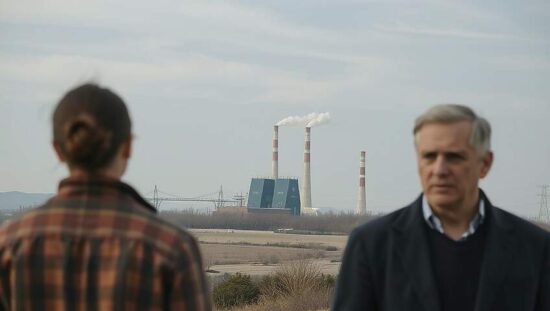The German coalition government has reached an agreement on a power plant strategy, a move hailed by Economics Minister Katarina Reiche (CDU) as a “critical step” towards ensuring Germany’s energy security and maintaining industrial competitiveness. The plan includes a short-term tender for a total of 12 gigawatts of dispatchable capacity, intended to bolster the nation’s power supply amidst ongoing concerns about reliability.
Reiche emphasized the strategy’s role as a necessary precursor to a broader, technology-agnostic capacity market designed to incentivize further power plant construction and flexible capacity development. She framed the agreement as a crucial compromise, balancing supply security with climate protection targets.
However, the accord has drawn sharp criticism from environmental groups who argue that the strategy falls short of true technology neutrality. Constantin Zerger, head of energy and climate protection at Deutsche Umwelthilfe (DUH), directly challenged the government’s approach, stating that a significant portion of the planned capacity, 8 gigawatts, will not be open to technologies like battery storage. He characterized the government’s focus on gas-fired power plants as a form of “central planning” and unsustainable.
Zerger’s criticism extends beyond the limitation on storage technology, highlighting the continued inclusion of carbon capture and storage (CCS) technology alongside the transition to hydrogen. He argues that prioritizing CCS could actively impede the development of a green hydrogen economy. He believes a substantial revision of the strategy is urgently needed to avoid “unnecessary and expensive fossil overcapacities and path dependencies.
The DUH’s assessment paints a stark picture, labeling the coalition agreement a “significant setback” for Minister Reiche and revealing what they allege to be a “fossil agenda”. According to Zerger, Reiche initially proposed significantly larger capacity additions – 20 gigawatts of gas-fired power plants – a proposal that seems to have been scaled back following internal pressure and a reassessment of feasibility, potentially revealing a disconnect between the Minister’s ambitions and the realities of EU law and climate goals. He questioned the rationale behind Reiche’s earlier, more ambitious proposals, accusing her of “wasting time with unrealistic suggestions”. The unfolding saga raises fundamental questions concerning the direction of Germany’s energy transition and the influence of vested interests in shaping energy policy.





